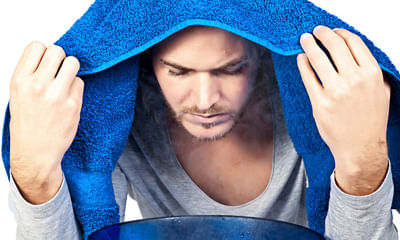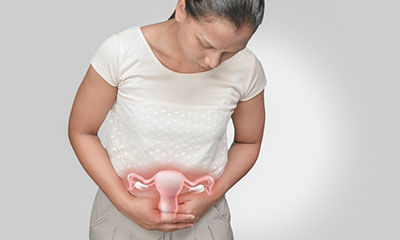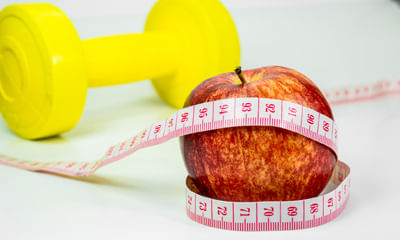Extra Skin Growth On Neck
1- december -2020 my son is 8 year old. Complained breathlessness 1.5 month ago. No cough no fever. Used to get breathle ...
Ask Free Question
He needs ics+laba inhalation. 0n a prolonged basis he has to rinse his mouth. with drinking water 5minutes after inhalàtion.he needs to put on a facemask.(seroflo 50 mdi inhaler with spacer.
Dear sir i'm 30 years n I have wart on my neck n under arms n between legs. I used podowart on my neck for 2 days now I ...
Ask Free Question
Good evening sir, its called situation with inflamation and cellulitis. Do not apply any drugs either remove it with help of surgeon. And consult to surgeon for extent of involvement of are and take his advice. Regards.
I am suffering from pcos but taking treatment means I am loosing my weight I lost 1.5 kg I didn't had follicle growth la ...
Ask Free Question
Women with PCOS have these characteristics: • High levels of male hormones, also called androgens • An irregular or no menstrual cycle • May or may not have many small cysts in their ovaries. Cysts are fluid filled sacs. PCOS is the most common hormonal reproductive problem in women of childbearing age. How many women have PCOS? An estimated 5 to 10% of women of childbearing age have PCOS. About PCOS Women with PCOS develop several cysts inside 1 or both ovaries. Generally, 15 to 20 follicles begin to mature for ovulation every month. Usually 1 follicle fully matures, and the rest die off. Women with PCOS however never have 1 follicle fully mature. As a result, 15 to 20 follicles stay inside the ovaries and become cysts. These cysts produce high levels of male hormones causing a number of unpleasant symptoms. What causes PCOS? No one exactly knows the cause of PCOS. Evidence suggests there is a genetic link to this disorder. Certain factors appear to play a role in this syndrome. They include: •Low FSH – FSH (Follicle Stimulating Hormone) is a hormone released by the pituitary gland in your brain. It helps the follicles inside your ovaries to mature enabling ovulation. •Excess male hormones – most women with PCOS have high levels of male hormone. This interferes with ovulation and contributes to PCOS •Insulin resistance – many PCOS are insulin resistant. Insulin resistance occurs when your body does not manage insulin properly. Insulin is important for proper ovarian function. Hence insulin resistance can contribute to PCOS. What are the symptoms of PCOS? • Infrequent menstrual periods, no menstrual periods and or irregular bleeding • Infertility or inability to get pregnant because of not ovulating • Increased growth of hair on the face, chest, stomach, back, thumb or toes • Acne, oily skin or dandruff • Weight gain or obesity, usually extra weight around the waist • Male pattern baldness or thinning hair • Skin tags, or tiny excess flaps of skin in the armpits or neck area. What are the complications of PCOS? • Infertility – because PCOS interferes with ovulation you can have long term fertility problems • Endometrial cancer – PCOS can cause the inner lining of your womb to become thicker, increasing your risk of developing endometrial cancer • Obesity related illness – because PCOS increases your chance of being overweight, it causes weight related health illness such as high blood pressure, diabetes and heart disease. Getting the symptoms under control at an earlier age may help to reduce this risk. What tests are used to diagnose PCOS? Diagnosis is based on a physical examination and a few clinical tests. Your Gynaecologist will provide a pelvic examination to look for swelling of your ovaries, check your hormone levels and possibly arrange an ultrasound in order to get a detailed picture of your ovaries and the endometrium (inner lining of your womb). What is the difference between PCO and PCOS? The term polycystic ovaries (PCO) describes the appearance of the ovaries seen on ultrasound, but do not have symptoms or hormone findings as described previously. Approximately 20% of women in the general population have ovaries with this appearance. What is not known from the current evidence is whether these women will develop a full blown PCOS in the future. How is Polycystic ovarian syndrome treated? Because there is no cure for PCOS, it needs to be managed to prevent problems. Treatments are based on the symptoms each patient is having and whether she wants to conceive or needs contraception. Common PCOS treatment options include: Weight loss - weight loss will help to regulate insulin levels and help to restore ovulation and menstrual cycles. Birth control pills - pills that contain oestrogen and progesterone will help to regulate the menstrual cycles and decrease the appearance of hair growth and acne. The menstrual cycle will become abnormal again when the pill is stopped. Women may also think of taking a progesterone only pill. This will help to prevent endometrial problems, but not help to reduce acne and hair problems. Diabetes medication - the diabetes medication, metformin, affects the way insulin is processed in the body. It also helps to decrease the testosterone level (male hormone level). This may help to restore ovulation and lessen hair growth. Fertility medications - fertility medication, injections of Gonadotropins (hormone injections) may help to stimulate ovulation and increase your chances of getting pregnant. Medicine for increased hair growth and extra male hormones - if a woman is not trying to get pregnant, medical treatments such as Cyproterone acetate, Spironolactone, Finasteride etc have been shown to reduce male hormone effects on hair growth. All treatments must be continued for 8 to18 months before a response is expected. This is due to the slow rate of hair growth. Other non-medical treatments such as electrolysis or laser hair removal are effective at getting rid of hair. Surgery - ovarian drilling is often an effective procedure that helps to stimulate ovulation. During surgery small holes are made in the ovary which helps to reduce the testosterone level (male hormone level) and an increase in ovulation. Does PCOS change at menopause? Researchers are looking at how male hormone levels change as women with PCOS grow older. They think that as women reach menopause, ovarian function changes and menstrual cycle may become more normal. But, even with falling male hormone levels, excessive hair growth continues, and male pattern baldness or thinning hair gets worse after menopause.
At the time me and my husband have sex I'm getting Soo much pain. Can you help me why. ...
Ask Free Question
Dyspareunia is a term used for pain felt in the genital area or pelvis during or after having sex (intercourse). Nobody really knows exactly how common it is, as many women never seek medical help. However, questionnaires asking women if they have symptoms suggest that somewhere between 1 and 4 out of 10 women experience it. Most commonly, this is early in their sexual lives or around the menopause. There are many causes of dyspareunia, most of which are not serious or damaging in nature, but all can be detrimental to your sex life and ultimately may lead to relationship difficulties. It can be a vicious circle, with pain leading to nervousness about having sex, and nervousness leading to dryness and further pain. It's also not uncommon for dyspareunia to remain after the cause has been treated, particularly if things have been left untreated for a while. For this reason, it is important to seek help early, so that treatable causes can be discovered and managed. This leaflet discusses the types and possible causes of dyspareunia. What is dyspareunia? Dyspareunia is pain felt in the genital area or pelvis during or after having sex (intercourse). It may be thought of as either superficial dyspareunia or deep dyspareunia. They have different causes and treatments and, although it's possible to experience both at the same time, most women find that their dyspareunia is predominantly one or the other type. Superficial dyspareunia This is pain felt in the lips of the vagina (labia), at the vaginal entrance (introitus) and the lower part of the vagina. It typically begins with penetration or very early on after intercourse has begun. It is sore and instant. It is usually quickly relieved by stopping penetration, although you may be sore to the touch afterwards for a little while. The causes of superficial dyspareunia are usually local problems of the labial, vaginal and perineal skin (the perineum is the area of skin between the vaginal opening and the back passage). Deep dyspareunia This is the term for pain felt deeper in the pelvis during or after intercourse. It can also spread to involve the fronts of the thighs. It may be sharp or dull, may stop when penetration stops or can continue for minutes or even hours. The causes of this type of pain usually lie rather deeper in the pelvis. Causes of superficial dyspareunia Skin bridge Formation of a little bridge of scar tissue at the very back of the vaginal entrance (introitus) is common after childbirth, particularly if you have had a cut between the vagina and back passage (anus) - a procedure called episiotomy. The scar tissue contains nerve endings and is very sensitive, and so it causes pain on penetration. The pain tends to become worse as having sex (intercourse) continues, as the skin bridge becomes rubbed by the continuing rubbing of penetration. Intact hymen The hymen is a membrane that lines the vaginal opening. Early in your sex life the hymen is broken down by the act of having sex. In many young women it will already have been stretched by use of tampons. The name 'intact hymen' is misleading, as the hymen does in fact have a small hole in it from birth. This hole becomes larger little by little as girls grow older. However, the hymen can be quite thick and the hole not quite large enough. This can mean that early in her sexual life a woman my feel pain from the hymen as it is forced open the first time she has intercourse. The pain is superficial, felt at the entrance to the vagina as soon as penetration is attempted and may prevent it from taking place. Vaginismus Vaginismus causes a powerful and often painful contraction of the muscles around the entrance to the vagina, which makes penetration painful or impossible. It may also prevent the use of tampons and any sort of gynaecological examination. The spasm of vaginismus is not something you can cause deliberately; it's completely outside your control. It may seem to begin for no reason but can also result from a painful or worrying experience of sex, when it becomes a kind of protective reflex. However, vaginismus is upsetting and dispiriting for both halves of a couple, as it can prevent the enjoyment of sex for many years and can prevent sex completely. Once it has begun, fear of failure and nervousness about not being able to have sex make it worse. It's important to seek help to break the cycle of anxiety and pain. Vaginismus is not difficult to treat but your doctor may need to refer you to a psychologist or specialist physiotherapist. Bartholinitis Bartholin's glands are a pair of glands on either side of the vagina, in the tissues of the wall. They can become inflamed and tender causing Bartholinitis and this will lead to pain during sex. Occasionally, the glands swell during sex, so that it starts off as painless but then becomes painful as it continues. See separate leaflet called Bartholin's Cyst and Abscess for more details. Vulvodynia This is a very troublesome condition where the vulval area becomes painful and extremely sensitive to pressure and touch. It can be accompanied by severe pain on attempted penetration. It can also cause the vulval area to be painful touched and during activities of everyday living. It can lead to frustration and depression, as symptoms can be very long-standing. The causes are uncertain but may involve the nerves in the area becoming much more sensitive than normal and the way the brain communicates wtih these nerves changing in some way. Treatment includes the use of emollient soap substitutes, creams that numb the area, medicines that lessen pain, physiotherapy and cognitive behavioural therapy. Lichen sclerosus This is a scarring skin condition which may affect women of any age, including children. It can affect men too. It results in thinning of the skin of the genital area, together with formation of white patches. It may be caused by the immune system. It causes itching and pain, which can last for a very long time. It's often mistaken for thrush as it can be very itchy and sometimes slightly sore. Lichen sclerosus carries a small risk risk of cancer of the genital skin. For this reason it should be diagnosed and treated - treatment is usually with regular application of creams. See separate leaflet called Lichen Sclerosus for more details. Female genital mutilation Female genital mutilation (which used to be known as female circumcision), involves varying degrees of mutilating surgery to the genitals of a girl. In the more extreme forms, the vagina is stitched shut. Following genital mutilation there is usually permanent scarring, which may lead to damaged nerves and pain. Any of these issues can cause pain on penetration and may make sex impossible. Vaginal abnormalities Very rarely, abnormalities of the vagina itself make sex painful or even impossible. These include pieces of extra tissue inside the vagina which are present at birth (vaginal septa). Causes of superficial and deep dyspareunia Vaginal trauma The vagina is pretty flexible and strong and usually recovers well from the stretch and (sometimes) small tears of childbirth. However, more significant injury to the vagina - for example, from difficult childbirth or mutilation - can lead to scarring and then to pain and difficulty during sex (intercourse). Vaginal or genital infection Infections of the vagina and the area around it cause inflammation of the tissues and so commonly cause pain on having sex. Infection may be with thrush (candida - a yeast that often lives in the bowel), with viruses such as herpes and with germs (bacteria). A wide range of bacterial infections can infect the vagina. Some (but by no means all) are sexually transmitted. The vagina is not always sore and itchy before sex but becomes so afterwards. There is often a coloured discharge and you may notice an offensive smell. See separate leaflets called Vaginal Thrush (Yeast Infection), Genital Herpes and Bacterial Vaginosis for more details. Vaginal dryness Sometimes pain during sex is due to lack of lubrication, meaning that the vagina is too dry. Normally, the vagina produces secretions which keep it moist and these increase when you become sexually aroused. If there isn't enough foreplay, or you are not aroused enough, you may not produce enough secretions to make penetration comfortable. However, it isn't always as simple as that. There may be reasons why you don't produce the secretions that you should. These can include psychological reasons such as nervousness because sex has previously been uncomfortable; anxiety around becoming pregnant; or anxiety around waking your sleeping children. Dryness can also be for physical reasons - the vagina tends to be drier after the menopause (see below). Some medicines can cause vaginal dryness, including some contraceptive methods. Vaginal dryness is also associated with a condition called Sjögren's syndrome, in which the body's secretions are generally rather reduced. Finally, pregnancy itself can make the vagina dry during intercourse (although it can also have the opposite effect). Vaginal atrophy After the menopause the levels of hormones in your body fall - particularly the level of oestrogen. Oestrogen is the hormone that keeps the vaginal wall strong and resistant. It increases the blood supply and the level of secretions and makes the wall softer and more stretchy. Therefore, when oestrogen levels fall after the menopause, the tissues become thinner, less stretchy and less well lubricated. Sometimes they can become as fragile and delicate as the vaginal tissues of young girls (who have not yet reached puberty and started their periods). There are lots of very effective treatments for this problem. See separate leaflet called Vaginal Dryness (Atrophic Vaginitis) for more details. Causes of deep dyspareunia Deep dyspareunia can be caused by the genital organs themselves but may also be caused by other structures in the tummy (abdomen) that can be easily knocked during sex (intercourse). There are therefore many possible causes of deep pain in the tummy during sex. Cervical pain The neck of the womb (cervix) should not normally be painful. However, if can become infected by many of the organisms which can infect the vagina - particularly herpes. If the cervix becomes inflamed then knocking it with the penis during sex may cause deep pain in the pelvis and sometimes across the fronts of the thighs. The cervix may also become tender and sensitive if you have an intrauterine contraceptive device, particularly if it is sitting a little too low or falling out. This can cause sudden sharp pains in the cervix during sex. (Fortunately cervical cancer is very rare and does not usually cause painful sex.) Endometriosis Endometriosis is a condition in which little bits of womb (uterine) lining become embedded in other parts of the body. Most usually this is in the ovaries, the Fallopian tubes that link the womb to the ovaries, and the cervix. These bits of tissue bleed whenever you have a period. This blood tends to cause scar tissue formation with sticking of organs to one another, and the whole pelvis can become painful. Endometriosis is typically found in young women, and may only become apparent when they come off the contraceptive pill if they have been taking it for a while. This is because 'the pill' suppresses it and is, in fact, a treatment for endometriosis. Endometriosis causes pain on sex, typically pain that comes on with deep penetration and continues for some time after penetration is over. It also causes painful periods, and women with endometriosis can find it difficult to get pregnant. See separate leaflet called Endometriosis for more details. Ovarian cysts The presence of cysts on the ovaries can cause pain during sex (intercourse). This is because the ovaries can be knocked by the penis during intercourse and this can cause the cysts to leak fluid. It's not unusual to have cysts on the ovaries, as cyst formation is a normal part of the period (menstrual) cycle. However, these 'physiological cysts' are typically very small. Larger cysts are more likely to leak and cause pain, and can be a sign of endometriosis, especially in younger women. In women who have passed their menopause, ovarian cysts are worrying, as they can be a sign of ovarian cancer. See separate leaflet called Ovarian Cyst. Another, harmless form of pain from the ovary is called 'Mittelschmerz. This is pain when an egg is released from the ovary. Pain from Mittelschmerz may not be related to sex at all, and typically lasts for two or three days in the middle of the month - but sex may make it worse when it's there. Fibroids and growths in the womb Fibroids are non-cancerous (benign) growths in the muscle of the womb, which can cause the womb itself to become quite bulky. This is not always painful but it can lead to discomfort during sex. See separate leaflet called Fibroids. Causes related to womb position In some women the womb tilts backwards, rather than forwards; the ovaries then tend to fall backwards too. This can lead to them being knocked in positions involving deep penetration. This can result in deep pain in the pelvis that is more noticeable with deep penetration and which settles slowly when penetration stops or when you change your position. Bowel pain During intercourse the bowel is also knocked and moved. If the bowel is sensitive or tender then this can be the origin of pain during sex. This is particularly likely in women who have Crohn's disease, ulcerative colitis or irritable bowel syndrome, all of which are conditions that cause the bowel to be painful. See separate leaflets called Irritable Bowel Syndrome, Crohn's Disease and Ulcerative Colitis. Pelvic inflammatory disease This is a condition of the Fallopian tubes, the womb and, sometimes, the ovaries. It is caused by infection and makes these organs inflamed. As they tend to move during sex, this is painful. The pain is typically felt deep in the pelvis, is worse with deep penetration and settles slowly when penetration stops. Pelvic inflammatory disease also tends to make you feel unwell, and may cause a temperature and a vaginal discharge. See separate leaflet called Pelvic Inflammatory Disease. Bladder pain The bladder sits on top of your womb, just behind and above your pubic bone. Like the womb, the bladder moves and gets pressed on during intercourse. So, if the bladder is inflamed, this may hurt. Typical causes include urine infections and interstitial cystitis. This is a condition in which the bladder becomes sensitive and painful. It behaves like a urine infection but no infection is present. Summary Symptoms of dyspareunia (pain felt in the pelvis during or after sex) are distressing and depressing. They can affect your sex life, your fertility and even your relationship. Many of the causes have a very simple solution and it is important to seek help if you are experiencing problems.
I want to know the main symptoms of thyroid .which commonly seen in all thyroid all thyroid patents. And want to know so ...
Ask Free Question
lybrate-user, Thyroid is the normal gland present in all of us. It produces thyroxine hormone, essential for development & day to day functioning of brain, for all the vital metabolic activities in the body. Deficiency of the hormone causes hypothyroidism where patient experiences weight gain, tiredness, early fatigue, slow heart rate, dry skin. Dry hair and hair fall, irregular menstruation, infertility, joint pains, mood swings, depression etc. Hyperthyroidism causes loss of weight, anxiety, increased heart rate, palpitation, sleeplessness, etc. Getting a thyroid assay will help in knowing whether thyroid is functioning normally or not. Thanks.
I am 19 old girl. I am having medicines for PCOS. I have 100 kg weight. My problem is my neck, underarms have black colo ...
Ask Free Question
Hi! The darkening is due to excessive weight, hormonal issue and friction. Losing weight will help the darkening. Do not scrub very hard, it will make the skin more dark. Wear loose fitting cotton clothes. Avoid using harsh soaps, perfumes directly on skin. You can try this home remedy: Squeeze crushed cucumber to extract the juice and then add the lemon juice and turmeric. Stir well and apply on the affected area. Leave it on for 15 minutes and then rinse it thoroughly with water. Do this daily or every other day. Do not apply if there are cuts or scratches. There are treatment sessions done in Dermatologist's office for faster results.
I have some extra skins on my body and I want to remove that by laser. I do not know what is the exact word for that. It ...
Ask Free Question
By your descriptions it could be skin tags or also called acrochordons. They are just benign soft growths occurring over the neck, armpit and groin area usually. Skin tags usually associated with obesity, diabetes mellitus and familial history. In that case it's safe to get removed by laser or radiofreqyency.
I have stretch marks on my shoulders they continue growth and appear near neck also how to get rid of it? And I have acn ...
Ask Free Question
Hello , apply Topi Berberis on the acne marks. There's no way to prevent stretch marks. There are no products on the market that can prevent them, Creams that claim to work on stretch marks are applied to the external layer of skin. But they won't reach the layer underneath, which is the part that stretches. So There's no need to spend lots of money on creams and lotions. Make your Own Stretch Marks Removing Lotion:-For this, mix ¼ cup aloe vera gel and ½ cup extra virgin oil. Break open 6 Vitamin E capsules and 3-4 Vitamin A capsules and add the liquid to the oil and gel mixture. Mix all the ingredients and store it in a bottle. This is your natural lotion to remove stretch marks. Keep this bottle in the refrigerator. Apply daily on the stretch marks. Shake the bottle before use. ***Take Schwabe's Silicea Pentarken, 2 tabs ,twice daily for 1 month.**
WHAT IS THE CAUSE OF THYROID? What are the effects of thyroid? AND HOW TO control OR REDUCE IT TO THE NORMAL. My TSH Res ...
Ask Free Question
Thyroid gland produce thyroid hormone. Problem occurs when thyroid gland underactive or overactive. Hashimotos thyroiditis is the cause of hypothyroidism and grave's disease is most common cause of hyperthyroidism. You should go through a proper medication and balanced diet will help to reduce extra weight.







